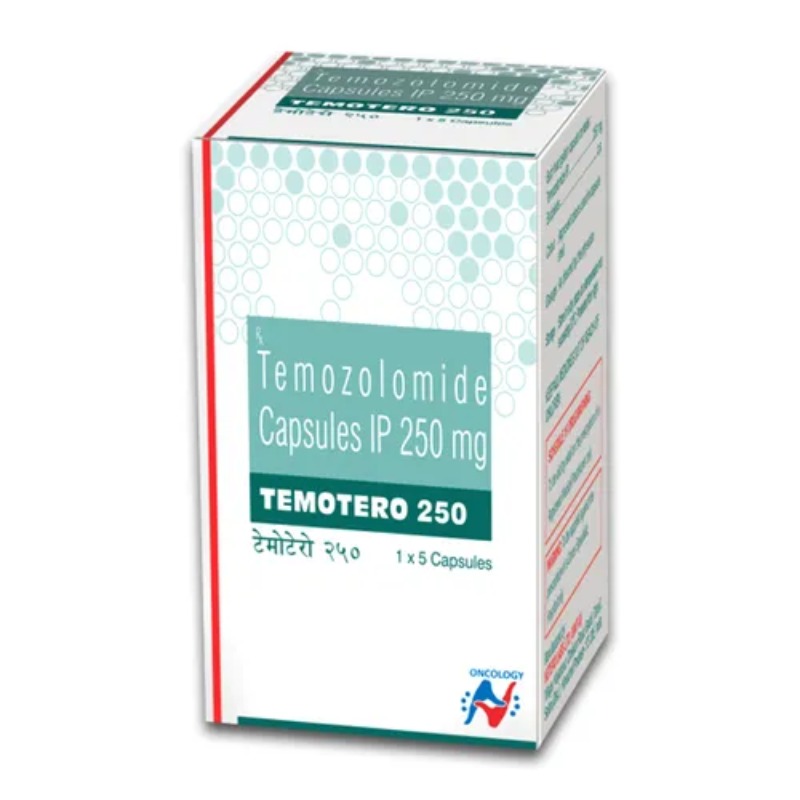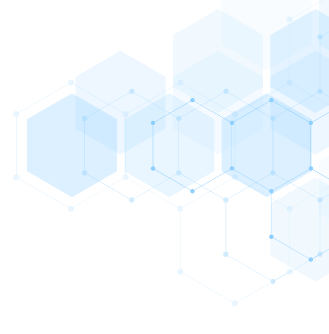DESCRIPTION
MECHANISM OF ACTION
• Imidazotetrazine analog that is structurally and functionally similar to dacarbazine.
• Cell cycle–nonspecific agent.
• Metabolic activation to the reactive compound MTIC is required for antitumor activity.
• Although the precise mechanism of cytotoxicity is unclear, this drug methylates guanine residues in DNA
and inhibits DNA, RNA, and protein synthesis. Does not cross-link DNA strands.
ABSORPTION
Widely distributed in body tissues. Rapidly and completely absorbed, with an oral bioavailability approaching 100%. Maximum plasma
concentrations are reached within 1 hour after administration. Food reduces the rate and extent of drug absorption.
DISTRIBUTION
Temozolomide is able to cross the blood-brain barrier as a result of its lipophilicity. Levels in brain and CSF are 30%–40% of those
achieved in plasma. Relatively weak binding to human plasma proteins.
INDICATIONS
• FDA-approved for refractory anaplastic astrocytomas at first relapse following treatment with a nitrosourea and procarbazine-containing regimen.
• FDA-approved for newly diagnosed glioblastoma multiforme (GBM) in combination with radiotherapy and then as maintenance treatment.
• Clinical activity in metastatic melanoma.
DOSAGE RANGE
• Anaplastic astrocytoma: 150 mg/m2 PO daily for 5 days every 28 days.
• Dose is adjusted to nadir neutrophil and platelet counts. If nadir of ANC is acceptable, the dose may be increased to 200 mg/m2 PO daily for
• 5 days. If ANC falls below acceptable levels during any cycle, the next dose should be reduced by 50 mg/m2 PO daily.
• Newly diagnosed GBM: 75 mg/m2 PO daily for 42 days along with radiotherapy (60 Gy in 30 fractions). During the maintenance phase,
which is started 4 weeks after completion of the combined modality therapy, temozolomide is given on cycle 1 at 150 mg/m2 PO daily for
• 5 days followed by 23 days without treatment. For cycles 2–6, the dose of temozolomide may be escalated to 200 mg/m2 if tolerated.
DRUG INTERACTION
None well characterized to date
SPECIAL CONSIDERATIONS
• Temozolomide is a moderately emetogenic agent. Aggressive use of antiemetics prior to drug administration is required to decrease the risk of nausea and vomiting.
• No dose reduction is necessary in the setting of mild or moderate hepatic dysfunction. Has not been studied in patients with severe hepatic dysfunction.
• No dose reduction is necessary in the setting of mild or moderate renal dysfunction. Has not been studied in patients with severe renal dysfunction or in those with end-stage disease.
• Patients should be warned to avoid sun exposure for several days after drug treatment.
• Use with caution in elderly patients (age > 65), as they are at increased
• Risk for myelosuppression.
• Patients should be monitored closely for the development of PCP, and those receiving temozolomide and radiotherapy require PCP prophylaxis.
• Pregnancy category D. Breastfeeding should be discontinued.
TOXICITY 1.
Myelosuppression is dose-limiting. Leukopenia and thrombocytopenia are commonly observed
TOXICITY 2
Nausea and vomiting. Mild to moderate, usually occurring within 1–3 hours and lasting for up to 12 hours. Aggressive antiemetic therapy strongly recommended.
TOXICITY 3
Headache and fatigue.
TOXICITY 4
Mild elevation in hepatic transaminases.
TOXICITY 5
Photosensitivity.
TOXICITY 6
Teratogenic, mutagenic, and carcinogenic.
SPECIFICATION


Login To Comment